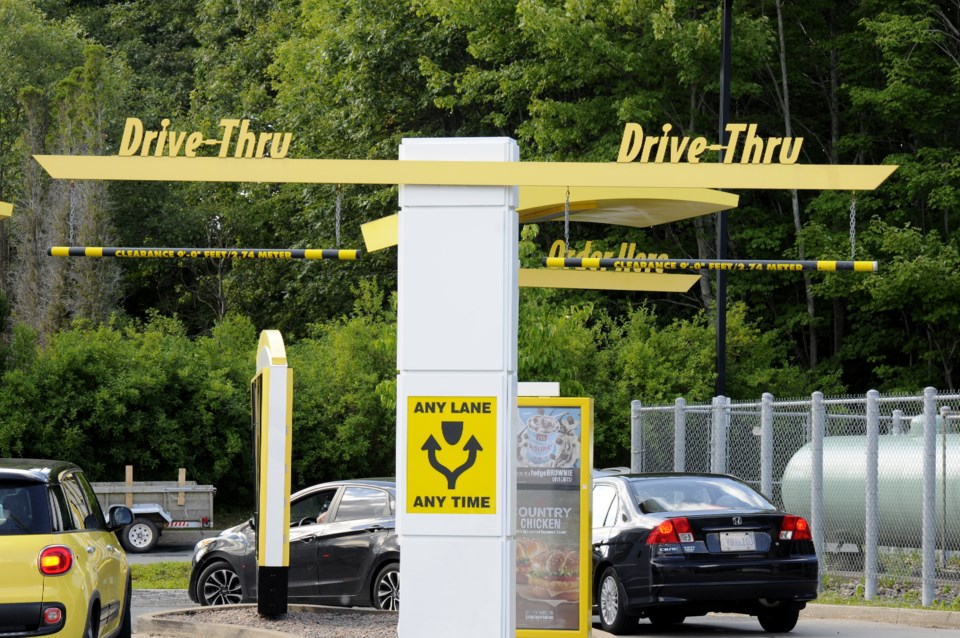Halifax’s environment committee is looking at a feasibility study to ban drive-thrus in the city – and they certainly aren’t alone.
Last year, a University of Alberta study by public health researcher Candace Nykiforuk found that 27 different municipalities, including Vancouver, Toronto, and Calgary are already limiting the number of drive-thrus in their downtown cores. The reasons range from environmental – reducing emissions from idling and cutting down on litter, to health – the fast food served in drive-thrus isn’t always the best, to reducing traffic congestion.
In Vancouver, there are only about 10 drive-thrus, most of them McDonalds.
They may be convenient, and I’ll admit they are a lifesaver when my kids fall asleep in the car and I want to get a snack without waking them. But that said, the emphasis on speed is a bit of a paradox.
The other day I stopped at a Starbucks where the drive-thru line wound around the corner. I stood in line with three other women watching the six or seven staff members rush around serving drive-thru customers. All the while, none of them approached the till to take our order.
Frustrated, the woman behind me pulled out her phone and placed a mobile order. Hers was ready before I had even been served.
The problem with drive-thrus is that so often they take priority over people actually in the restaurant itself. It’s like a family sitting down together at the dinner table, all messaging other people on their phones instead of talking to each other.
There’s a lot of convenience that comes with being able to grab coffee or food without even killing your engine; but as society moves to ban straws and certain kinds of plastics, it seems there will be less and less public appetite for this kind of offering.
At some point we need to question what demand for drive-thrus says about our society.
On the extreme end, there’s a drive-thru funeral home in Michigan where you can pay your respects to great-aunt Margaret without even getting out of your car. Imagine a world where even the death of a friend or relative isn’t enough to cut through the “busy” of everyday.
An outright ban goes too far, but maybe it’s time for us to put our money where our mouth is.
Ada Slivinski is the Founder & Principal of Jam PR, a boutique agency focused on helping small businesses get big exposure. You can reach her at [email protected]



